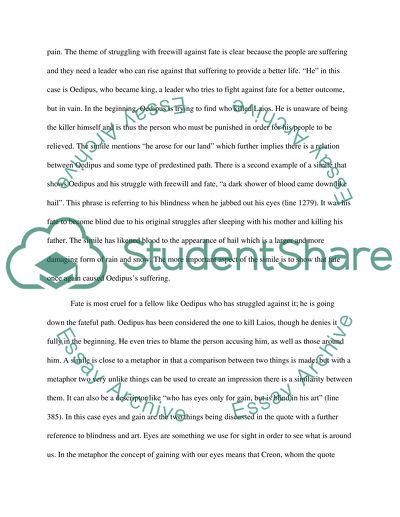Cite this document
(“Figurative Language Depicts the Struggle with Freewill Against Fate Essay”, n.d.)
Retrieved from https://studentshare.org/literature/1435963-discuss-the-figurative-language-similes-metaphors
Retrieved from https://studentshare.org/literature/1435963-discuss-the-figurative-language-similes-metaphors
(Figurative Language Depicts the Struggle With Freewill Against Fate Essay)
https://studentshare.org/literature/1435963-discuss-the-figurative-language-similes-metaphors.
https://studentshare.org/literature/1435963-discuss-the-figurative-language-similes-metaphors.
“Figurative Language Depicts the Struggle With Freewill Against Fate Essay”, n.d. https://studentshare.org/literature/1435963-discuss-the-figurative-language-similes-metaphors.


